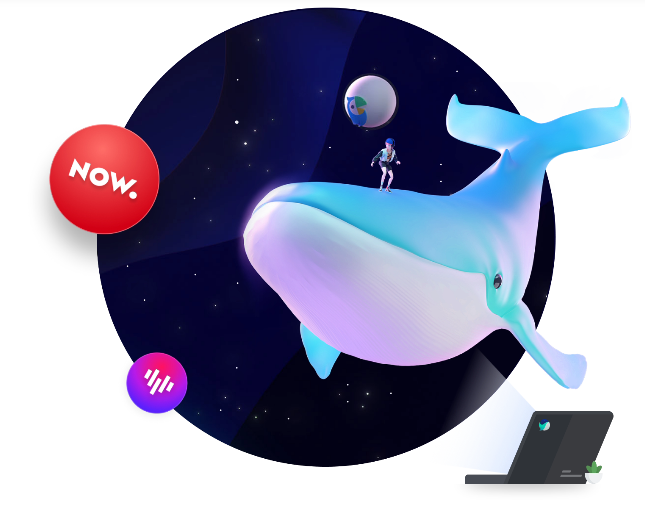Tech, Media & Telecom
Naver to launch global version of Whale browser in Q1 2024
Naver Cloud targets customized versions to Southeast Asia and Latin America where demand for sovereign browsers is high
By Nov 26, 2023 (Gmt+09:00)
3
Min read
Most Read
LG Chem to sell water filter business to Glenwood PE for $692 million


KT&G eyes overseas M&A after rejecting activist fund's offer


Kyobo Life poised to buy Japan’s SBI Group-owned savings bank


StockX in merger talks with Naver’s online reseller Kream


Meritz backs half of ex-manager’s $210 mn hedge fund



Naver Cloud, the infrastructure subsidiary of South Korea’s online giant Naver Corp., plans to launch a global version of its Whale browser in the first quarter of 2024 to take on world heavyweights such as Google Chrome and expand its presence in the universal web browser industry.
Naver Cloud also aims to provide customized versions for overseas companies and institutions at the same time, Naver Cloud Whale Director Kim Hyo told The Korea Economic Daily in a recent interview.
“It is time to compete with overseas web browsers,” Kim said. “We are set to release Whale’s global version in the first quarter of next year. The version, which excludes the portal Naver, will support various languages.”
Naver introduced Whale in 2016 in South Korea. Whale is usable in other countries, but it is not convenient in overseas markets where Google’s search engine is popular as the browser is linked to the Naver portal.
Last month Whale accounted for 7.6% of South Korea’s web browser market dominated by Google Chrome with a market share of 54.1%, according to StatCounter, a web traffic analysis firm.
Whale lagged the browsers of smartphone makers Samsung Electronics Co. and Apple Inc. with Samsung Internet’s market share of 15.8% and Safari’s 14.8% while beating foreign browsers given Microsoft Edge’s 6% and Mozilla Firefox’s 0.7%.
5% OF GLOBAL BROWSER MARKET
“We will be able to strengthen Whale’s status as a universal platform even if we secure only a 5% share in the global market,” Kim said.
Naver Cloud expected Whale’s dual tab to attract enough users in overseas markets for competition with major global browsers.
The function allows users to open two tabs on one screen and simultaneously work on two pages.
The company is also considering adding generative artificial intelligence services on its sidebar to help users widely utilize the services without staying on a specific website.
CUSTOMIZED WHALES FOR SOVEREIGNTY
Naver Cloud plans to provide tailored versions of Whale to overseas customers even with an option to remove the browser’s brand if necessary, Kim said.
The company aims to provide browsers only with functions sought by institutions in other countries, which are concerned over heavy reliance on Big Tech companies in English-speaking nations such as the US.
“In Southeast Asia and Latin America, demand for their own browsers is sufficient,” Kim said. “We have a differentiated strategy to release Whale as a joint asset by meeting all requests by institutions in those countries.”

Naver Cloud already succeeded in such customized services for the South Korean education sector by supplying different versions of Whalespace, a software education platform based on the Whale browser, to provincial education offices.
The company agreed to provide Mongolia's Ministry of Education and Science with Whalespace and Whalebooks, laptops dedicated to the platform, last month.
Naver Cloud aims to link Whale to other platforms beyond PCs and smartphones in the long term, Kim said.
“We can use Whale for the metaverse, virtual reality and augmented reality by modularizing those platforms,” he said. “We will make Whale usable for head-mounted displays by utilizing the feature of highly compatible web technology.”
Write to Ju-Hyun Lee at deep@hankyung.com
Jongwoo Cheon edited this article.
More to Read
-
 Tech, Media & TelecomNaver Cloud to offer edutech service in Mongolia
Tech, Media & TelecomNaver Cloud to offer edutech service in MongoliaOct 25, 2023 (Gmt+09:00)
1 Min read -
 Tech, Media & TelecomNaver targets global edtech sector with Whale browser
Tech, Media & TelecomNaver targets global edtech sector with Whale browserSep 19, 2022 (Gmt+09:00)
3 Min read -
 Tech, Media & TelecomNaver’s web browser Whale challenges global rivals
Tech, Media & TelecomNaver’s web browser Whale challenges global rivalsJul 05, 2022 (Gmt+09:00)
2 Min read -
 Tech, Media & TelecomNaver aims to overtake Chrome in Korea with own browser Whale in 3 years
Tech, Media & TelecomNaver aims to overtake Chrome in Korea with own browser Whale in 3 yearsApr 27, 2021 (Gmt+09:00)
1 Min read
Comment 0
LOG IN


